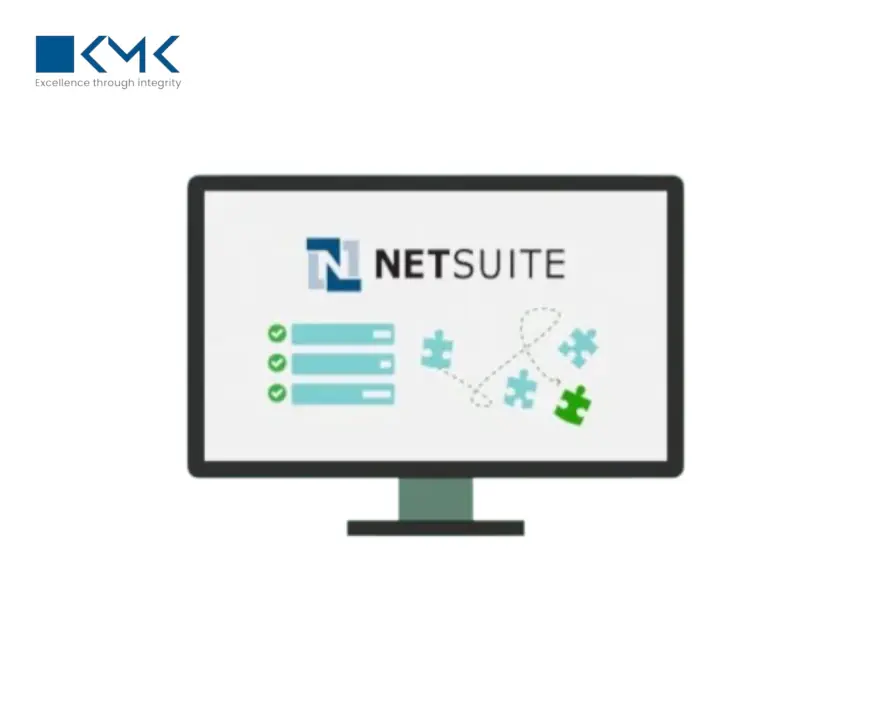How AP Automation Improves Vendor Relationships for US Companies

Strong vendor relationships are the backbone of a healthy supply chain. For US companies looking to grow sustainably, ensuring suppliers are paid accurately and on time is more than good practice—it’s a strategic advantage. Enter accounts payable automation. Automating the end-to-end process of accounts payable not only boosts internal efficiency but also enhances vendor satisfaction. From smoother payments to better transparency, automation—especially with solutions like NetSuite accounts payable automation is helping companies forge stronger, more reliable supplier partnerships. But how exactly does this transformation happen? And what are the specific benefits for vendors? Let’s explore how AP automation improves vendor relationships and why it's a game-changer for modern US businesses.
Why Do Vendor Relationships Matter So Much?
If your vendors aren't happy, your business won’t run smoothly. Late payments, miscommunication, and invoice errors can damage trust and result in:
-
Slower delivery times
-
Disrupted supply chains
-
Lost discounts
-
Penalties or strained negotiations
In contrast, vendors who are paid promptly and treated fairly are more likely to prioritize your business, offer better terms, and collaborate for the long haul.
What is Accounts Payable Automation?
Accounts payable automation replaces manual invoice processing, data entry, and approval workflows with digital, streamlined solutions. By using systems like NetSuite AP automation, businesses can manage invoices from receipt to payment with minimal human intervention.
From an AEO standpoint:
Answering “What is accounts payable automation?” directly helps capture featured snippets for users searching this common query.
Key features often include:
-
Automatic invoice capture using OCR
-
Digital approval workflows
-
Real-time status tracking
-
Integrated payments
-
Cloud-based access from anywhere
How AP Automation Enhances Vendor Relationships
Let’s look at the direct ways AP automation strengthens supplier partnerships:
1. Faster, On-Time Payments
Delayed payments are one of the top reasons vendors cut ties or deprioritize clients. Manual AP processes are often plagued with slow approvals, misfiled invoices, and forgotten due dates.
How automation helps:
-
Invoices are processed in real-time
-
Approval workflows are automatically routed
-
Payment reminders and early payment schedules are built-in
With NetSuite accounts payable automation, US businesses can ensure vendors are paid promptly—building trust and reliability.
2. Fewer Errors and Disputes
Manual AP systems are notorious for errors—wrong amounts, duplicate payments, or missed invoices. Each error is a potential dispute that can damage vendor trust.
Automation minimizes errors by:
-
Capturing invoice data using AI/OCR
-
Matching invoices with purchase orders (3-way matching)
-
Preventing duplicate or fraudulent payments
A smoother, error-free process results in fewer complaints and better communication.
3. Improved Communication and Transparency
Vendors often don’t know where their invoice stands—has it been approved? When will they be paid? Without visibility, frustration builds.
Automation tools provide:
-
Self-service vendor portals
-
Real-time status updates
-
Notifications for approvals, rejections, or changes
This transparency shows vendors you value their time and professionalism.
4. Ability to Offer Early Payments and Discounts
AP automation helps companies take advantage of early payment discounts by accelerating invoice approvals. This not only benefits your bottom line but also shows vendors you’re a preferred partner.
For example, with P2P accounts payable automation, companies can analyze spend data and identify opportunities to negotiate better terms based on reliable payment histories.
5. Scalability Across Multiple Vendors and Locations
As businesses grow, so do their vendor networks. Managing hundreds—or thousands—of suppliers manually becomes impossible.
Cloud-based platforms like NetSuite scale effortlessly, allowing centralized control over:
-
Vendor records
-
Payments
-
Compliance
-
Audit logs
Whether you have local suppliers or international partners, automation ensures consistency and professionalism.
6. Better Vendor Analytics and Insights
A modern accounts payable services company doesn’t just handle payments—they provide insights. AP automation systems gather valuable data like:
-
Vendor performance (e.g., responsiveness, accuracy)
-
Spend by category or region
-
On-time payment rates
With this data, you can identify top-performing vendors, spot risks, and make smarter procurement decisions.
Role of NetSuite in Vendor-Focused AP Automation
NetSuite accounts payable automation is especially useful for businesses looking to centralize and streamline vendor-related processes. Key benefits include:
-
Custom approval workflows
-
Full visibility into the end-to-end process of accounts payable
-
Vendor self-service portals
-
Seamless P2P accounts payable integration
-
Automated payment scheduling via ACH, check, or card
It supports both US and global vendors with tax-compliance tools and multi-currency capabilities—ideal for businesses with complex supplier networks.
Choosing the Right Accounts Payable Services Company
Not every business wants to manage AP automation in-house. Many partner with an accounts payable services company that:
-
Specializes in NetSuite AP automation
-
Offers vendor onboarding and support
-
Manages compliance and security
-
Provides full reporting and reconciliation services
The right partner doesn’t just process invoices—they help elevate your vendor relationships through operational excellence.
Final Thoughts: Make AP Automation Part of Your Vendor Strategy
Today’s vendors are more than suppliers they’re collaborators in your business growth. Treating them with respect, efficiency, and transparency pays off in more ways than one. By automating your AP function, especially using tools like NetSuite, you not only make life easier for your internal team—you also become a vendor’s ideal client.
What's Your Reaction?
 Like
0
Like
0
 Dislike
0
Dislike
0
 Love
0
Love
0
 Funny
0
Funny
0
 Angry
0
Angry
0
 Sad
0
Sad
0
 Wow
0
Wow
0

















































